Day #15 Departing The Ship And On Our Own Again (Page Twenty)
We are on our own today and tomorrow, we catch the train to Prague for additional adventures!

We moved to the Royal Park Boutique Hotel for the remainder of the day!
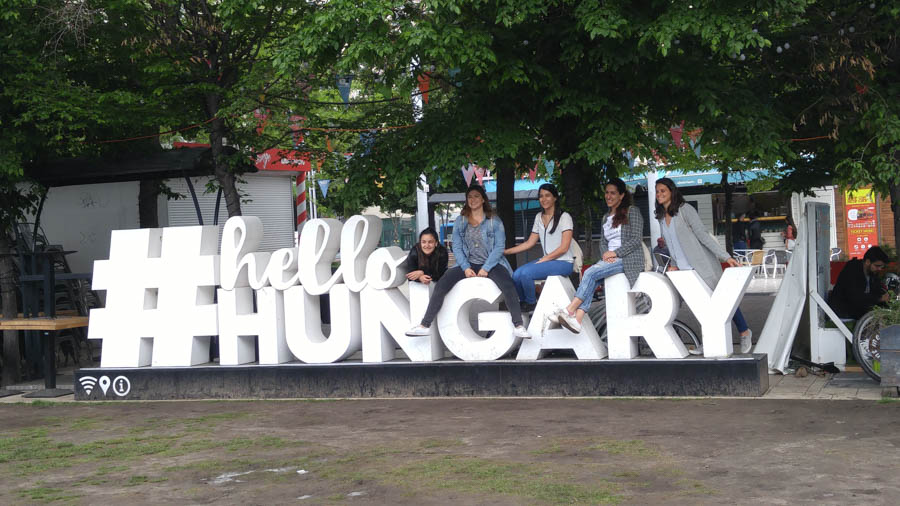

To the underground for additional touring

The stop by the Danube
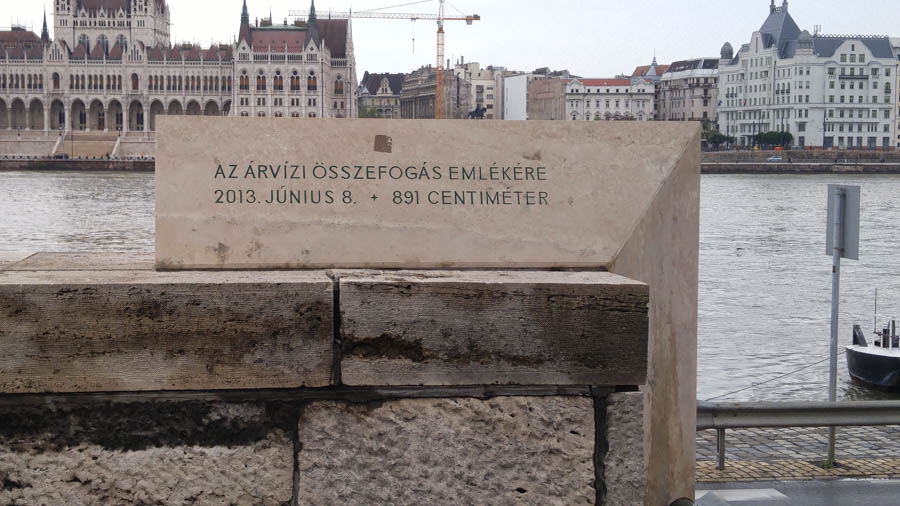
They had a pretty good flood in 2015

Our ship is getting ready to head back to Holland

The lion guards the bridge

Buda Castle Tunnel
Did You Know? - Those coming from the Pest end had to walk round the Castle Hill on the Buda side to be able to proceed northwards. On 10 February 1853, four years after the completion of the Chain Bridge, the building of a tunnel leading through the hill was started to the plans of Adam Clark. On 6 March 1856, the tunnel was opened for foot traffic, and on 30 April 1857 also for motor traffic.
Being 350 meters in length, it leads through under the Buda Castle to the other side of the hill. Its length is approximately identical to that of the Chain Bridge, prompting anecdotes according to which the tunnel has only been built so that in rainy weather, the Chain Bridge can be shoved in and be protected from wet conditions. The entry of the tunnel at its Chain Bridge end was also fittingly designed in classicist style.

Buda Castle
Did You Know? - Buda Castle (Hungarian: Budavári Palota, German: Burgpalast) is the historical castle and palace complex of the Hungarian kings in Budapest. It was first completed in 1265, but the massive Baroque palace today occupying most of the site was built between 1749 and 1769. The complex in the past was referred to as either the Royal Palace (Hungarian: Királyi-palota) or the Royal Castle (Hungarian: Királyi Vár, German: Königliche Burg).
Buda Castle sits on the south tip of Castle Hill, bounded on the north by what is known as the Castle District (Várnegyed), which is famous for medieval, Baroque and 19th-century houses, churches and public buildings. The hill is linked to Clark Ádám Square and the Széchenyi Chain Bridge by the Castle Hill Funicular. The castle is a part of the Budapest World Heritage Site, so declared in 1987.
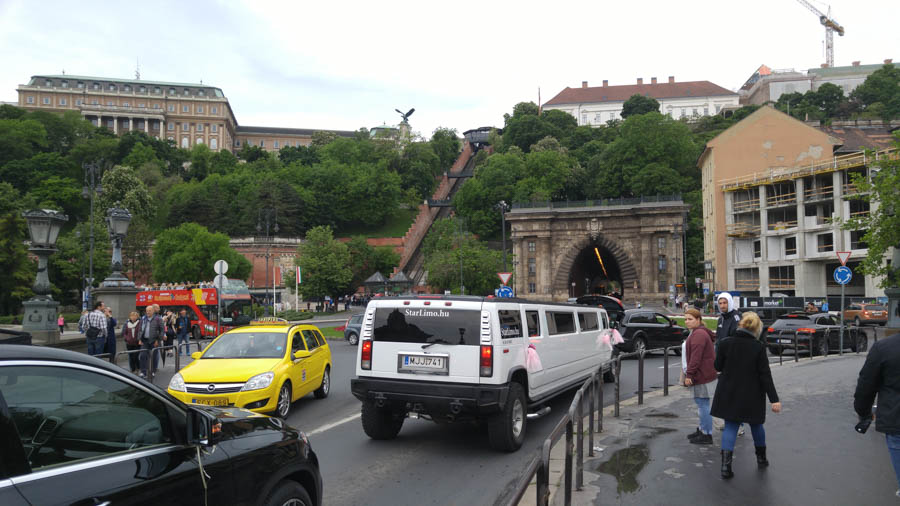
A view of Castle Hill

Nice walk across the bridge

The Gresham Palace
Did You Know? - The Gresham Palace (Gresham-palota) is a building in Budapest, Hungary; it is an example of Art Nouveau architecture. Completed in 1906 as an office and apartment building, it is today the Four Seasons Hotel Budapest Gresham Palace, a luxury hotel managed by Four Seasons Hotels. It is located along the River Danube, adjacent to Széchenyi Square and the eastern terminus of the Széchenyi Chain Bridge.
It is now a hotel. It currently has 179 guest rooms, including 17 suites.
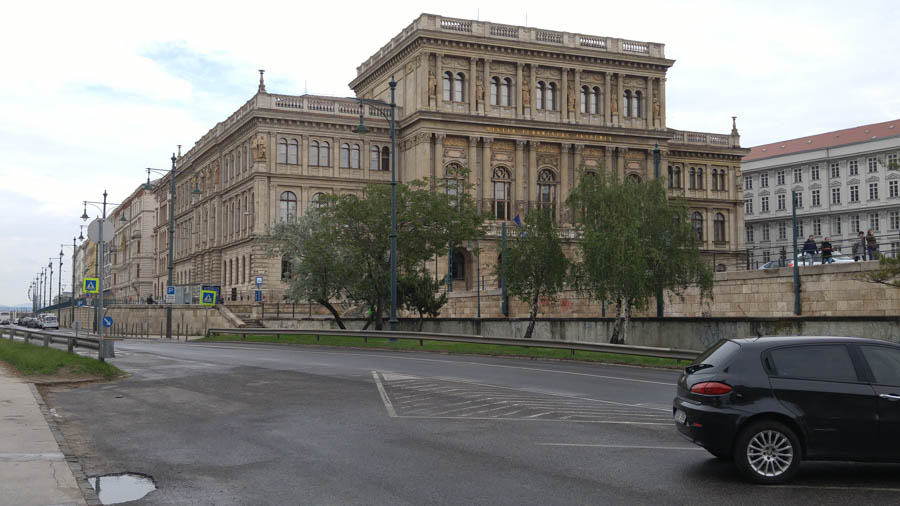
Huge building are right on the river
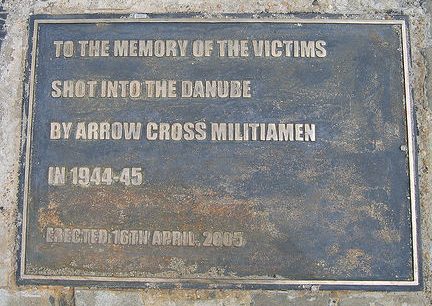
Arrow Cross Memorial
Did You Know? - The Arrow Cross Party (Hungarian: Nyilaskeresztes Párt – Hungarista Mozgalom, literally "Arrow Cross Party-Hungarist Movement") was a national socialist party led by Ferenc Szálasi, which led a government in Hungary known as the Government of National Unity from 15 October 1944 to 28 March 1945.
During its short rule, ten to fifteen thousand civilians (many of whom were Jews, Romani and Serbs) were murdered outright, and 80,000 people were deported from Hungary to various concentration camps in Austria. ] After the war, Szálasi and other Arrow Cross leaders were tried as war criminals by Hungarian courts.

Tribute to the victims
Did You Know? - The Shoes on the Danube Bank is a memorial in Budapest, Hungary. Conceived by film director Can Togay, he created it on the east bank of the Danube River with sculptor Gyula Pauer to honor the people (mainly Budapest Jews) who were killed by fascist Arrow Cross militiamen in Budapest during World War II. They were ordered to take off their shoes, and were shot at the edge of the water so that their bodies fell into the river and were carried away. It represents their shoes left behind on the bank.
The monument is located on the Pest side of the Danube Promenade in line with where Zoltan Street would meet the Danube if it continued that far, about 300 metres (980 ft) south of the Hungarian Parliament and near the Hungarian Academy of Sciences; between Roosevelt Square and Kossuth square.
"The composition titled 'Shoes on the Danube Bank' gives remembrance to the 3,500 people, 800 of them Jews, who were shot into the Danube during the time of the Arrow Cross terror. The sculptor created sixty pairs of period-appropriate shoes out of iron. The shoes are attached to the stone embankment, and behind them lies a 40 meter long, 70 cm high stone bench. At three points are cast iron signs, with the following text in Hungarian, English, and Hebrew: "To the memory of the victims shot into the Danube by Arrow Cross militiamen in 1944–45. Erected 16 April 2005."

So very sad to remember the cruelty
of WWII - The shoes are bronze

People leave tributes to this day
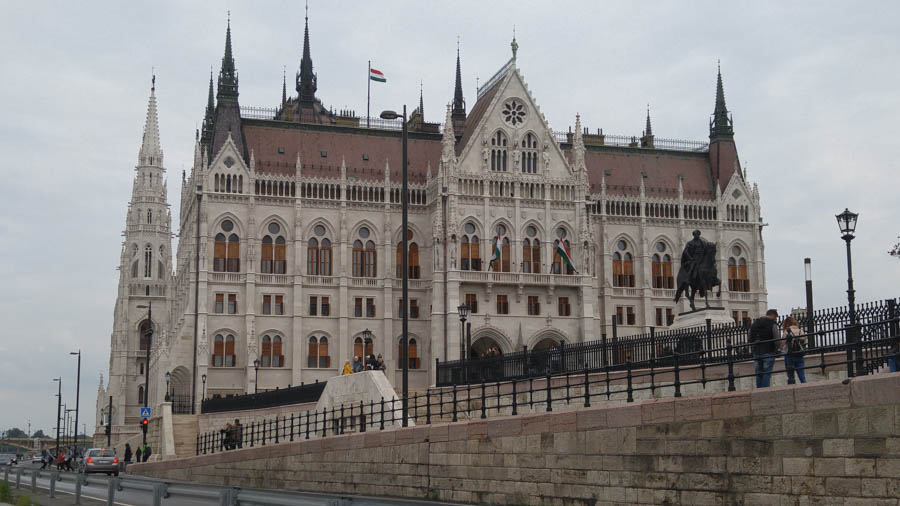
The Hungarian Parliament Building

Samll beidges dot the town

Time to dine!

Yummy!
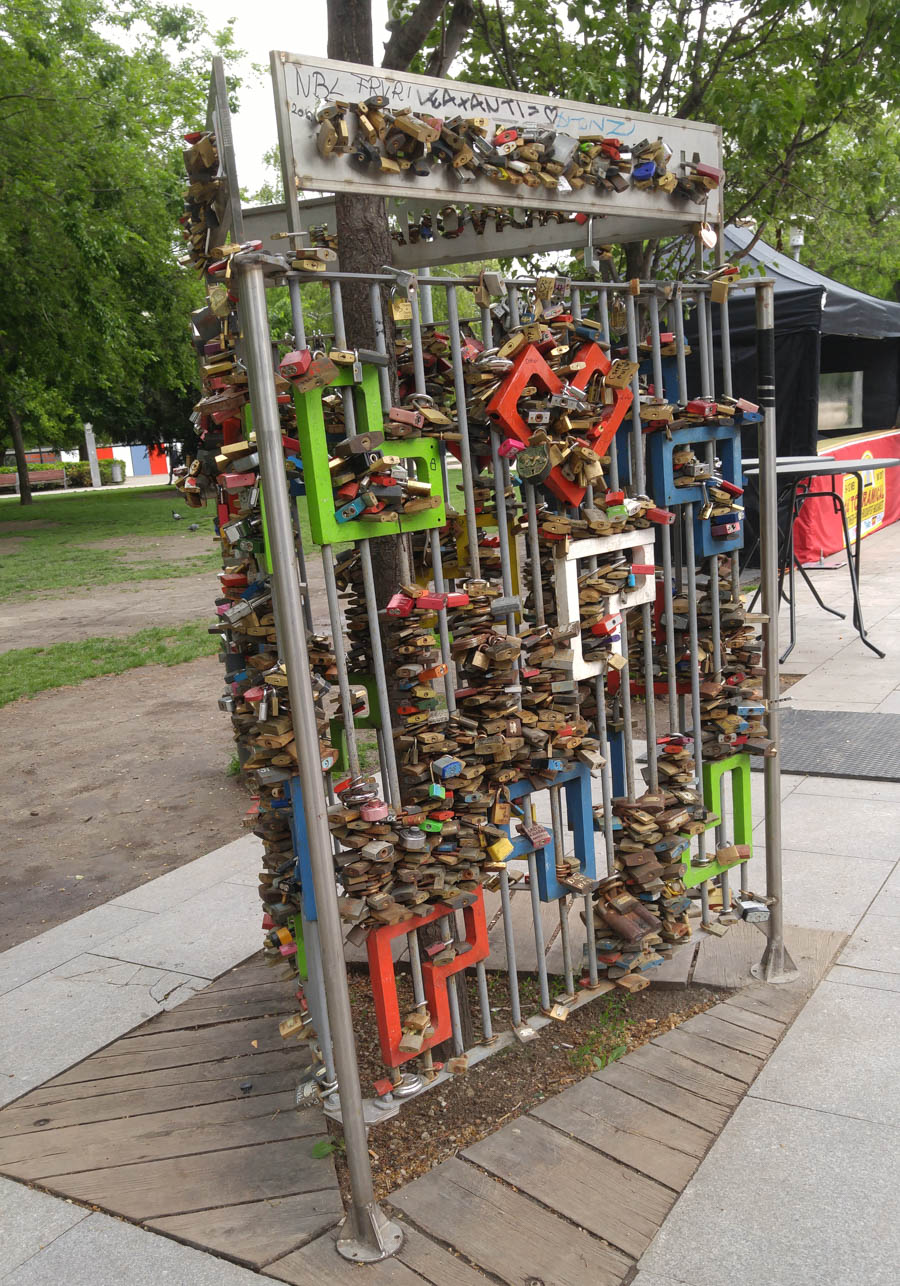
Checkout the padlocks!
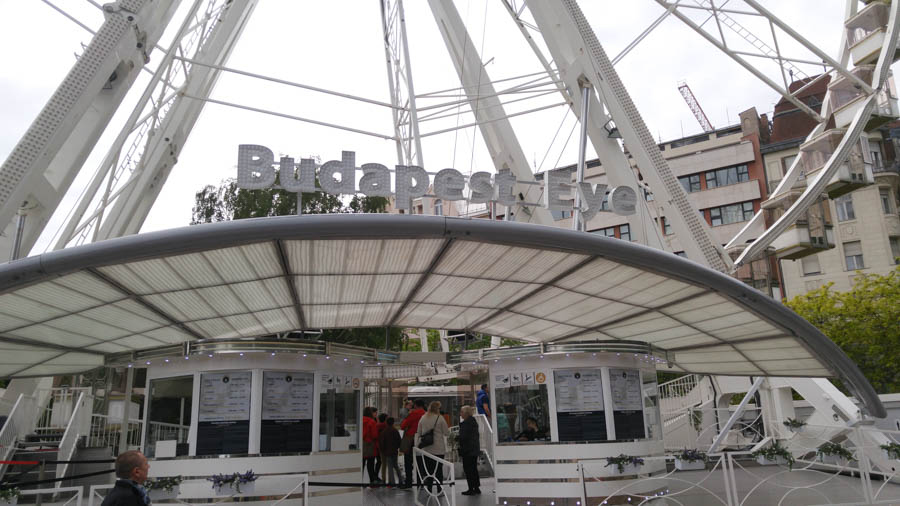
Time for our "uppies"

The Budapest Eye
Did You Know? - The Budapest Eye is a fun, annual experience in the city. Standing 65 meters tall, the ferris wheel is one of the tallest in Europe. Enjoy the ride in an enclosed cabin that brings you high enough to see the whole city.
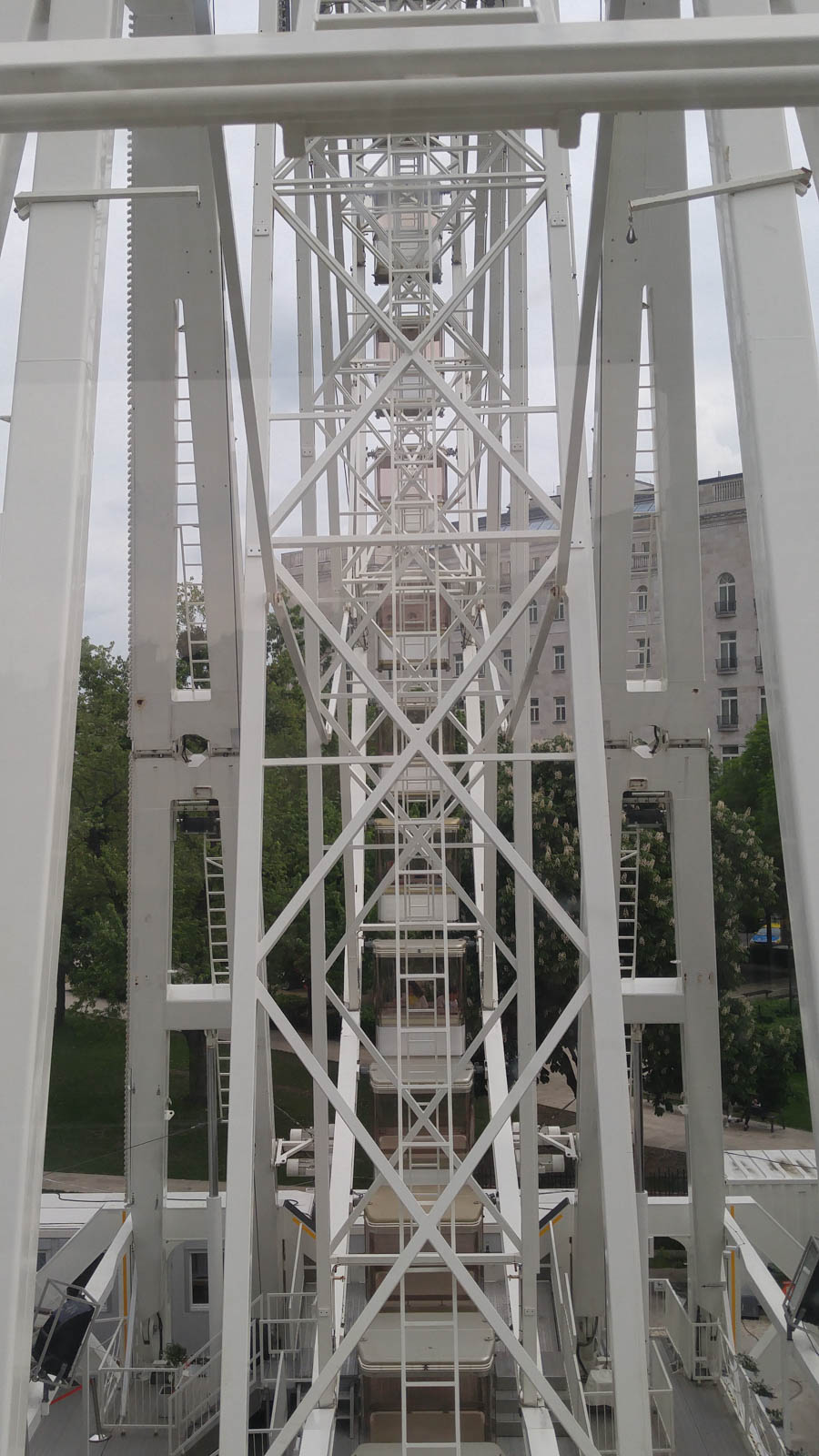
Up in the sky! Almost 200 feet!
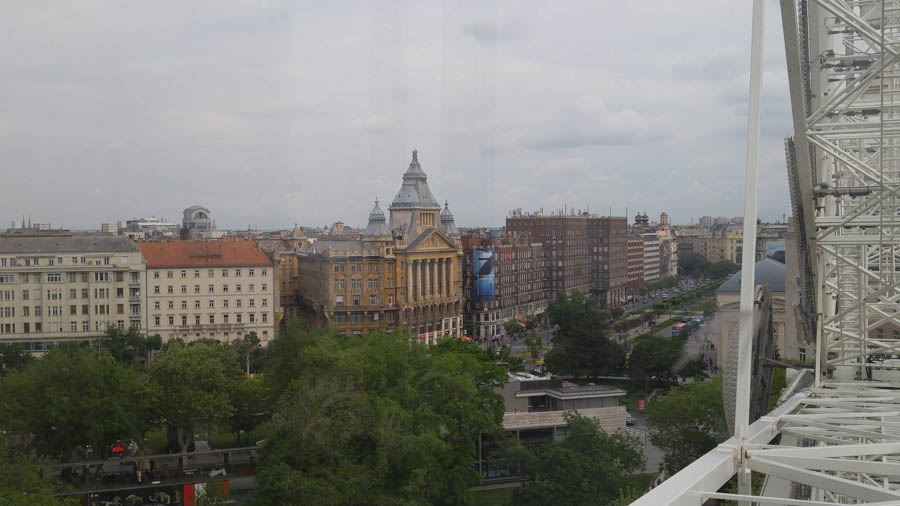
Great view of downtown
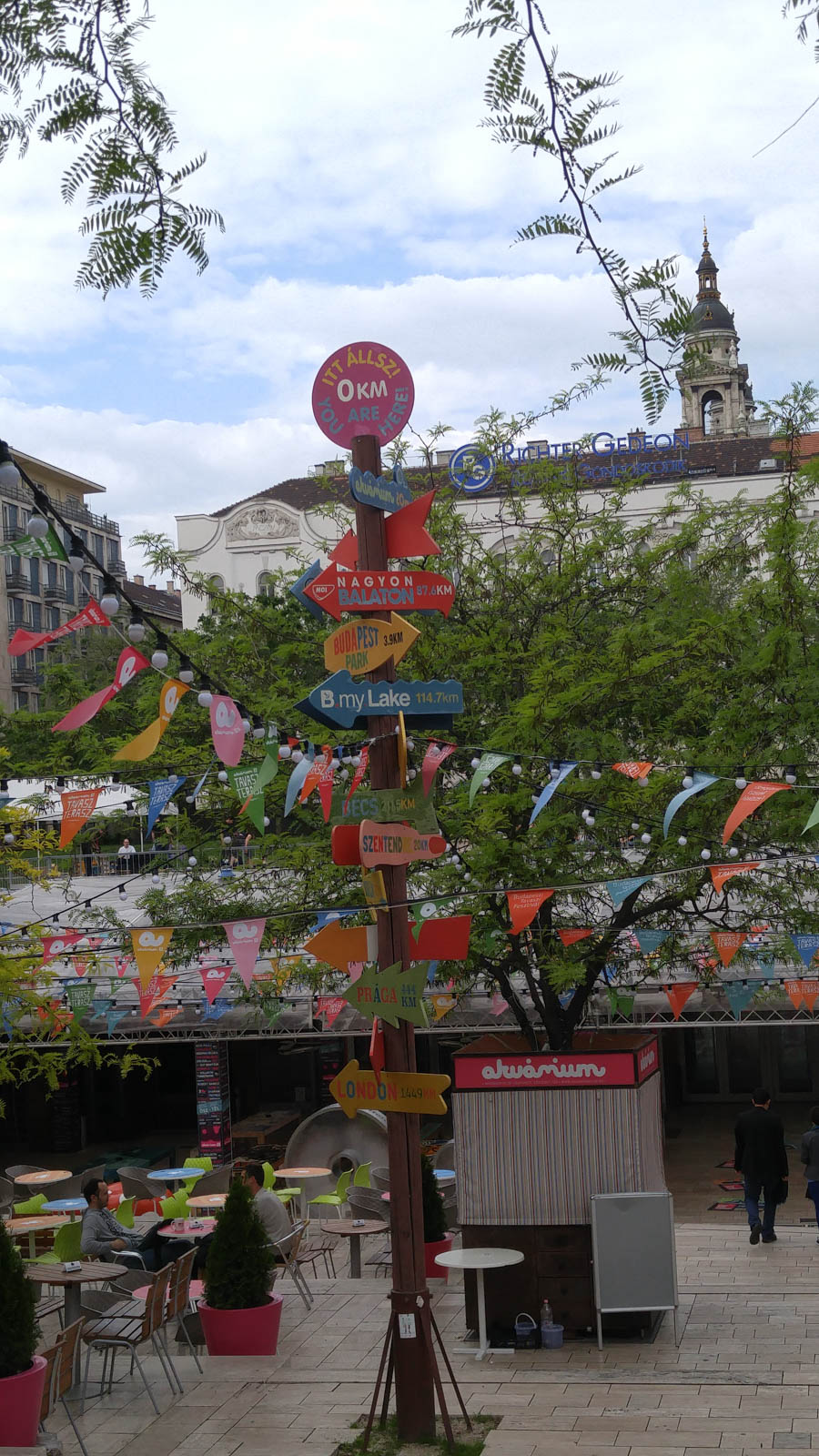
Time to head home... Packing and traveling tomorrow
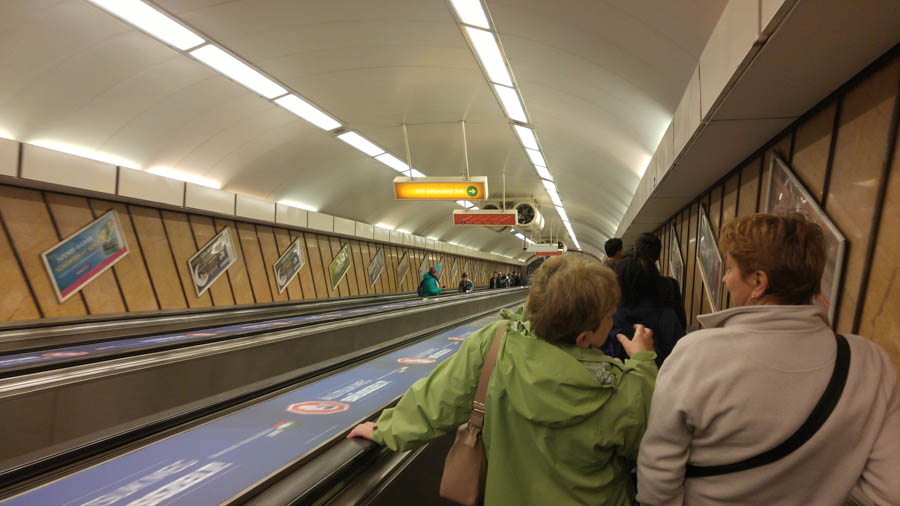
Down into the dungeons
Did You Know? - The Budapest Metro (Hungarian: Budapesti metró) is the rapid transit system in the Hungarian capital Budapest. It is the oldest electrified underground railway system on the European continent, and the second-oldest electrically operated underground railway in the world, predated only by the 1890 City & South London Railway (now part of the London Underground). Its iconic Line 1, completed in 1896, was declared a World Heritage Site in 2002

Returning to our hotel
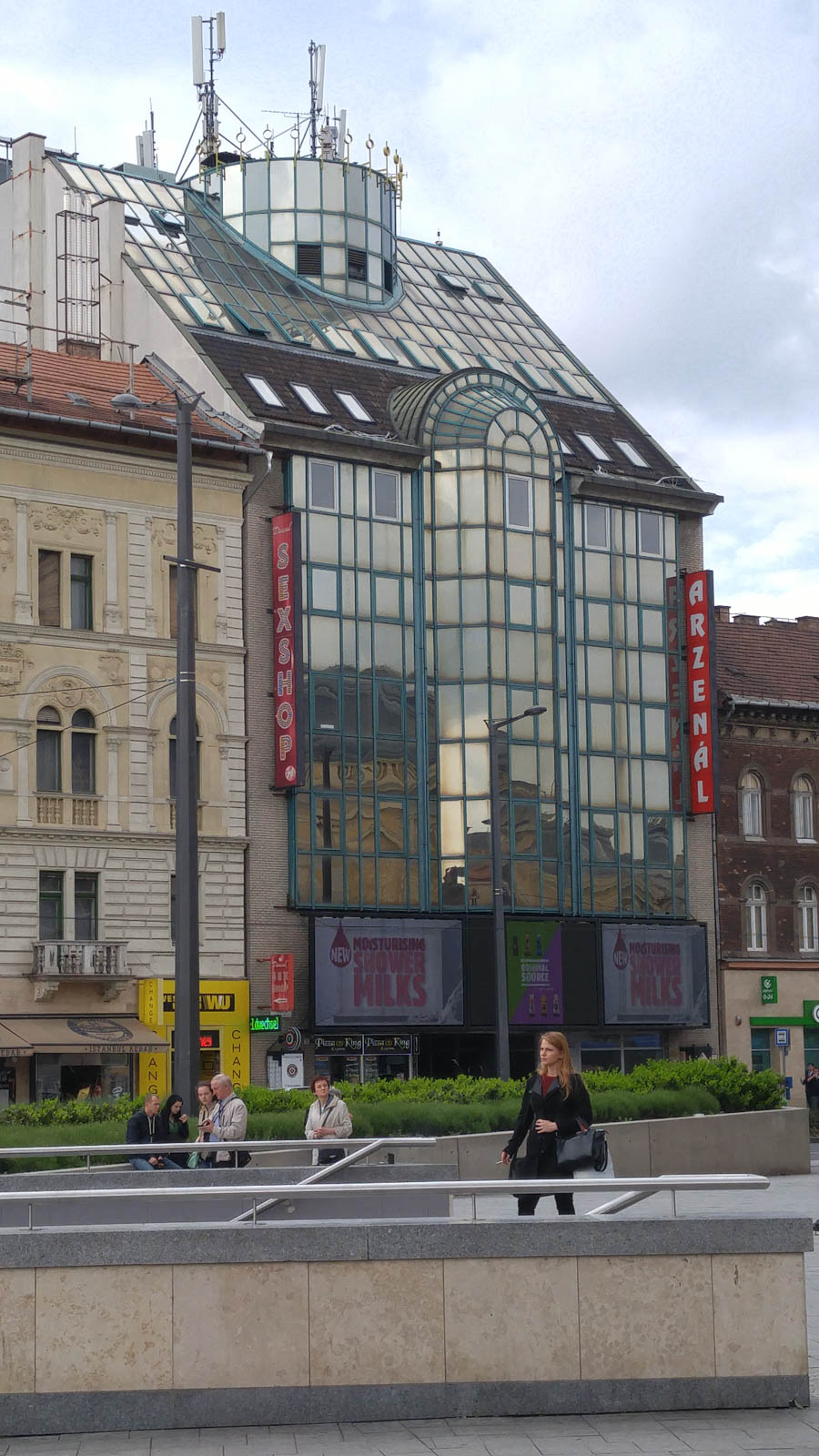
But first... The Sex Shop!?

Good nights sleep required!

A little dinner

Train to Prague (Page Twenty-One)
